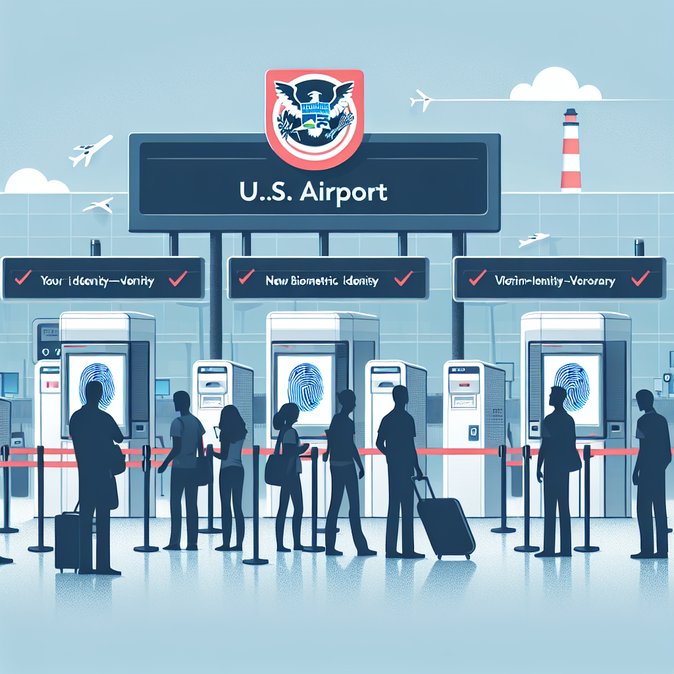
Travelers planning holiday trips after December 26 face the largest biometric expansion in U.S. border history. According to regulatory documents first reported on November 20, the Department of Homeland Security will remove age exemptions and authorize U.S. Customs and Border Protection officers to collect fingerprints, facial scans and, in limited circumstances, DNA from every non-citizen entering or departing the country—whether by air, land or sea. A new $30 overstay-monitoring fee will also apply to visits longer than 29 days, with fines up to $5,000 for non-compliance.
The rule completes a mandate Congress issued in 1996 for a comprehensive entry-exit system, a project repeatedly delayed until the Trump administration accelerated funding this year. Officials say the unified biometric platform will close enforcement gaps that allow an estimated 42 percent of undocumented population growth to come from visa overstays. Data may be retained for up to 75 years and shared with federal law-enforcement partners.
![U.S. to require expanded biometrics—including potential DNA—from all foreign travelers]()
For corporate travel, the biggest near-term impact is operational: CBP will pilot outbound facial-recognition gates at eight major airports, where non-citizens must verify identity before boarding. Frequent travelers from Canada and Mexico could also see new kiosks at land crossings that capture iris images and fingerprints. Although DHS says DNA swabs would be limited to "specific law-enforcement scenarios," privacy watchdogs warn the rule sets a precedent for routine genetic collection.
Airlines must update carrier-manifest interfaces to confirm that biometric exit data is transmitted in real time; failure could incur civil penalties under an accompanying TSA security directive. Global-mobility teams should brief foreign employees about longer departure lines during the rollout and advise on the new overstay fee for assignments extending beyond 29 days.
Legal challenges are expected from civil-liberties groups citing Fourth-Amendment and privacy-act concerns, but DHS believes prior court rulings on biometric collection at ports of entry give the agency broad authority. Companies should monitor for injunctions but plan for phased implementation starting the day after Christmas.
The rule completes a mandate Congress issued in 1996 for a comprehensive entry-exit system, a project repeatedly delayed until the Trump administration accelerated funding this year. Officials say the unified biometric platform will close enforcement gaps that allow an estimated 42 percent of undocumented population growth to come from visa overstays. Data may be retained for up to 75 years and shared with federal law-enforcement partners.

For corporate travel, the biggest near-term impact is operational: CBP will pilot outbound facial-recognition gates at eight major airports, where non-citizens must verify identity before boarding. Frequent travelers from Canada and Mexico could also see new kiosks at land crossings that capture iris images and fingerprints. Although DHS says DNA swabs would be limited to "specific law-enforcement scenarios," privacy watchdogs warn the rule sets a precedent for routine genetic collection.
Airlines must update carrier-manifest interfaces to confirm that biometric exit data is transmitted in real time; failure could incur civil penalties under an accompanying TSA security directive. Global-mobility teams should brief foreign employees about longer departure lines during the rollout and advise on the new overstay fee for assignments extending beyond 29 days.
Legal challenges are expected from civil-liberties groups citing Fourth-Amendment and privacy-act concerns, but DHS believes prior court rulings on biometric collection at ports of entry give the agency broad authority. Companies should monitor for injunctions but plan for phased implementation starting the day after Christmas.


